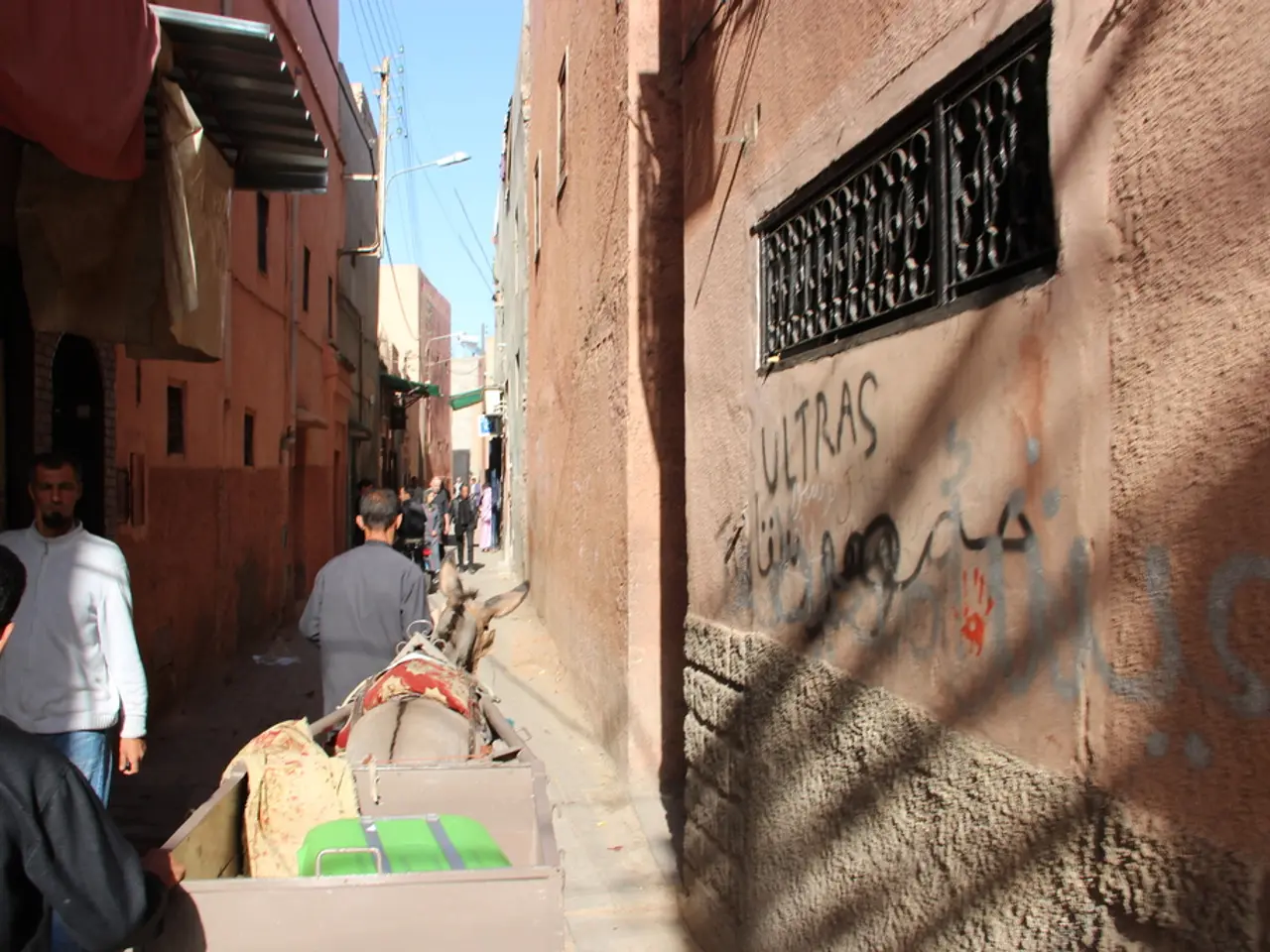Which nations support the acknowledgement of Palestine as a sovereign state?
In a shifting political landscape, the recognition of Palestine as a sovereign state by various countries continues to evolve. As of March 2025, 147 out of 193 UN member states have extended their recognition to Palestine[2][3]. This includes nations predominantly from Asia, Africa, and South America, as well as countries like Sweden, Spain, Ireland, and Norway[2].
The momentum towards Palestinian statehood has gathered pace in recent years, with several Western countries announcing their intentions to recognize Palestine.
Western Countries Planning to Recognize or Considering Recognition
Since 2024, several Western countries have expressed plans to recognize Palestinian statehood or are considering the move:
- France has announced its intention to unconditionally recognize Palestine at the September 2025 UN General Assembly[1][3].
- The United Kingdom has stated it would recognize a Palestinian state if Israel takes significant steps towards peace in the Gaza Strip[1][3].
- Canada has planned conditional recognition for September 2025, contingent on the Palestinian Authority agreeing to hold elections without Hamas and demilitarizing the Palestinian state[1][3].
- Australia has announced the possibility of conditional recognition for September 2025[1][3].
- Malta is scheduled to recognize Palestine in September 2025, having acknowledged the right to a sovereign state in 1988[2][3].
- New Zealand is considering recognition, with a decision expected in the near future[2].
- Portugal is also considering recognition[2].
- San Marino has announced a gradual process towards recognition in 2025[3].
These developments reflect a growing trend among Western countries to support Palestinian statehood, although the U.S., as a permanent member with veto power in the UN Security Council, remains a significant obstacle[4].
Key Developments
- Mexico announced its full support for Palestinian statehood in June 2023 and established a full embassy in the Palestinian territories[2].
- France became the first G7 country to announce its intention to recognize Palestinian statehood, followed by Canada, Malta, and Australia[1][3].
- Israeli Prime Minister Benjamin Netanyahu has criticized the moves to recognize a Palestinian state[1].
- Palestine was admitted as a full member of UNESCO in 2011, marking a victory for Palestinian diplomacy[2].
- Many countries already acknowledge the Palestinian territories as a state, but opposition remains strong from key powers[1].
- The United Nations General Assembly will discuss Palestinian statehood and a two-state solution on September 9[2].
This ongoing debate underscores the complexities and nuances of the Middle Eastern conflict, as countries navigate the path towards a resolution that is acceptable to all parties involved.
[1] https://www.reuters.com/world/middle-east/france-canada-uk-australia-mull-recognition-palestinian-state-2024-05-25/ [2] https://www.aljazeera.com/news/2025/3/25/147-countries-recognize-palestine-as-a-sovereign-state [3] https://www.middleeastmonitor.com/20250811-western-countries-considering-recognition-of-palestine/ [4] https://www.reuters.com/world/us/us-blocks-un-draft-resolution-granting-palestine-full-membership-2024-04-03/
- Amidst the ongoing debate, the United States, as a permanent member with veto power in the UN Security Council, remains a significant obstacle to the recognition of Palestine by Western countries.
- The growing trend among Western countries to support Palestinian statehood is evident in the moves by France, Canada, Malta, and Australia to recognize Palestine, followed by the announcements from Mexico, Australia, and New Zealand.
- The Middle East conflict continues to be a topic of political discussions worldwide, with key developments such as Palestine's admission as a full member of UNESCO in 2011 and the upcoming United Nations General Assembly discussion on Palestinian statehood and a two-state solution on September 9.
- The recent interest in recognizing Palestine by Western countries, as shown by the announcements from France, the United Kingdom, Canada, Australia, Malta, and others, has garnered attention in both general news and policy-and-legislation sectors.
- The momentum towards Palestinian statehood has not been limited to Europe and America, with Asia, Africa, and South America also expressing their support, alongside nations like Sweden, Spain, Ireland, Norway, and several others.
- Conflicts in the Middle East region, such as the Israeli-Palestinian conflict, have resulted in mass migrations, with the world taking notice and implementing various policies and legislations to address the issue.






